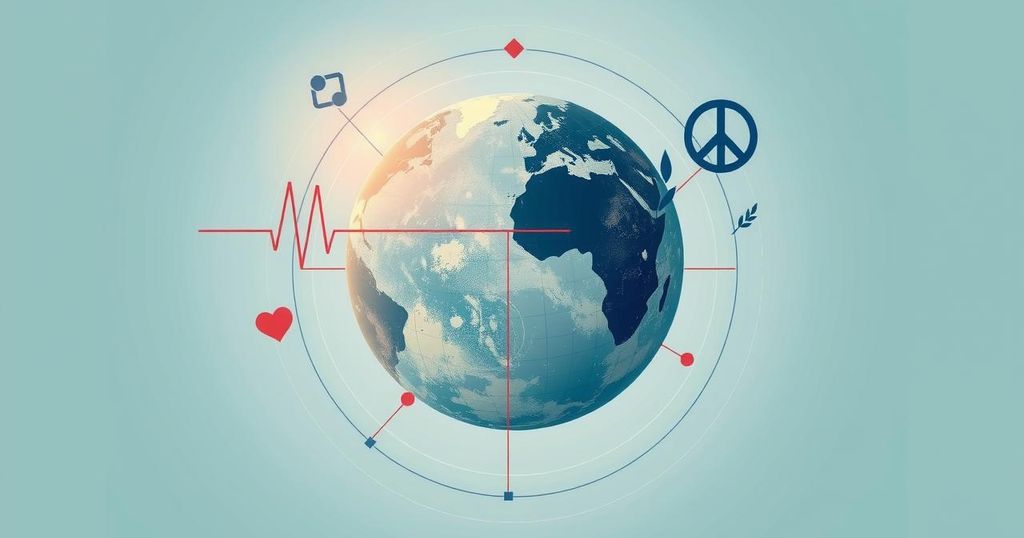Recent U.S. executive orders aim to limit cooperation with the UN, impacting various agencies and escalating humanitarian concerns. In Sudan, violence has resulted in the deaths of numerous children, while WHO warns of a significant breast cancer crisis in Africa. Tunisia confronts rights violations regarding imprisoned activists, while Chad and Nigeria’s agreement supports refugee repatriation, indicating regional collaboration efforts.
The latest executive orders from the White House will significantly affect the United States’ cooperation with the United Nations. This action follows the U.S. withdrawal from the World Health Organization (WHO) and the decision to halt participation and funding for the Human Rights Council. The order mandates a review of U.S. membership in UNESCO and addresses concerns regarding the UN’s Palestine refugee agency, UNWRA, which has been accused of terrorist affiliations.
In Sudan, escalating violence has tragically claimed the lives of at least 40 children over three days, as reported by UNICEF. Recent attacks included heavy shelling in Kadugli and strikes on markets in El Fasher and Khartoum. Annmarie Swai, UNICEF’s representative, emphasized the critical situation, highlighting that violence occurs almost daily, affecting civilian infrastructure and children’s safety.
The World Health Organization (WHO) has issued a grave warning that approximately 135,000 women in sub-Saharan Africa could die from preventable breast cancer by 2040 without immediate measures to address significant health disparities. Issues include a severe lack of healthcare workers, limited breast cancer screening programs, and inadequate facilities for diagnosis and treatment, highlighting the urgency for higher investment in healthcare.
In Tunisia, independent rights experts have renewed calls for the immediate release of activist Sihem Bensedrine, who is currently in intensive care following a hunger strike. Experts assert her detention seems retaliatory due to her role in the Truth and Dignity Commission, which examined human rights violations. They argue her findings must be protected under the commission’s mandate, calling for the dismissal of charges against her.
Chad and Nigeria have signed a tripartite agreement with the UN refugee agency, facilitating the voluntary repatriation of Nigerian refugees from Chad. This agreement signifies progress in ensuring that any repatriation occurs safely and with dignity while emphasising the pivotal role of maintaining the refugees’ rights. UNHCR has praised this cooperation aimed at providing lasting solutions for those displaced by conflict.
The article outlines significant global developments involving the United States and various humanitarian crises. It discusses the repercussions of U.S. policies on international organizations like the UN, particularly after the withdrawal from WHO. Violence in Sudan raises concerns for children amidst ongoing conflicts, while Africa faces a public health crisis regarding breast cancer. Tunisia’s political climate reflects human rights issues centered on the detention of activists, and progress is made in refugee management between Chad and Nigeria, showcasing cooperative efforts to address regional humanitarian challenges.
In summary, the current global landscape illustrates ongoing challenges that encompass human rights, public health, and conflict resolution. The United States’ diminishing involvement with the UN raises concerns about multilateral cooperation in addressing these challenges. As violence ravages Sudan, and breast cancer threatens women in Africa, urgent action is necessary. Meanwhile, Tunisia faces scrutiny over human rights issues, and Chad and Nigeria’s agreement for refugee repatriation highlights a positive step toward cooperative solutions.
Original Source: news.un.org






